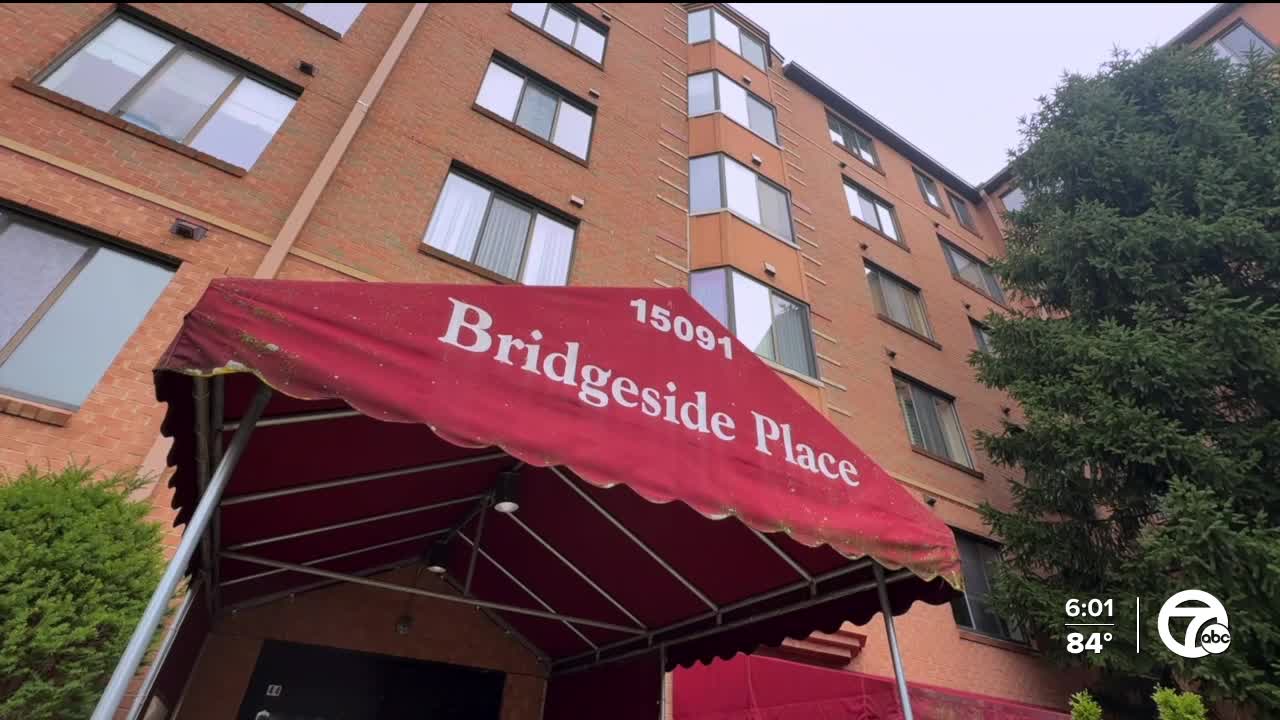DEARBORN, Mich. (WXYZ) — State and local health departments are investigating Legionnaires' disease cases at a retirement community in Dearborn after two residents died following hospitalization.
Watch Randy Wimbley's video report:
Residents at Allegria Village's Bridgeside Place building were alerted Tuesday to the possible presence of Legionella bacteria in the water system. The Michigan Department of Health and Human Services confirmed two residents had tested positive for Legionnaires' disease.
Wayne County Health, Human, and Veterans Services confirmed Friday that both residents have died, though the cause of their deaths remains under investigation.
I sat in on an informational meeting at the retirement community Friday morning, where about 50 residents gathered in the chapel to hear from staffers about the Legionella situation.
One resident, who did not want to be identified, expressed concern about the situation.
"It bothered me very much, but I didn't know what to do about it," she said.
Extended interview: 'It was scary.' Resident and mother react after Legionnaires’ disease hits retirement home
The resident's daughter temporarily moved her out of the facility.
"Those things are scary, and I just don't want her exposed because the mortality rate for Legionnaires'. It seems quite high. I heard like 10 percent," the daughter said.
According to information shared during the meeting, the affected residents lived in two separate units and had moved into the facility about a month ago.
Allegria Village is now working with both state and Wayne County health departments to investigate and respond to the situation. Their efforts include professional water testing, distribution of safe alternative bathing and drinking water, and urging residents not to shower.

Dr. Robert Malone, a village resident and retired physician, explained the danger.
"You don't want to create mist because that's where you're going to get it," Malone said. "I would like to see them get it tested and cleared so I can take a shower."

Village staffers told residents they could have water test results back by next Wednesday. As part of the investigation, authorities are also looking into another Legionnaires' disease case from August 2024.
Legionnaires' disease is a type of pneumonia caused by Legionella bacteria found naturally in freshwater environments. People can contract the disease by breathing in small water droplets containing the bacteria. Those most at risk include adults over 50, smokers, and individuals with weakened immune systems or chronic lung conditions.
I reached out to Allegria Village for comment but did not hear back in time for this story.
Wayne County Health, Human, and Veterans Services Statement:
Wayne County Health, Human, and Veterans Services (WCHHVS) was recently notified of cases of Legionella pneumonia (Legionnaires’ disease) among residents of Allegria Village in Dearborn, Michigan.
WCHHVS is working in close collaboration with Allegria Village and the Michigan Department of Health and Human Services (MDHHS) to investigate and respond to the situation. The investigation is in its early stages and ongoing, with the goal to ensure a safe and healthy living environment for residents and staff.
Michigan Department of Health and Human Services Statement:
MDHHS learned on July 18, 2025, that two recent cases of legionellosis were both residents of Allegria Village in Dearborn.
MDHHS has been supporting Wayne County Health Department with this investigation by providing epidemiology and industrial hygiene support, such as what information and specimens to collect, where water system testing should be done, review of documents such as water management plans, all in accordance with our established response protocols.
——————————————
This story was reported on-air by a journalist and has been converted to this platform with the assistance of AI. Our editorial team verifies all reporting on all platforms for fairness and accuracy.











